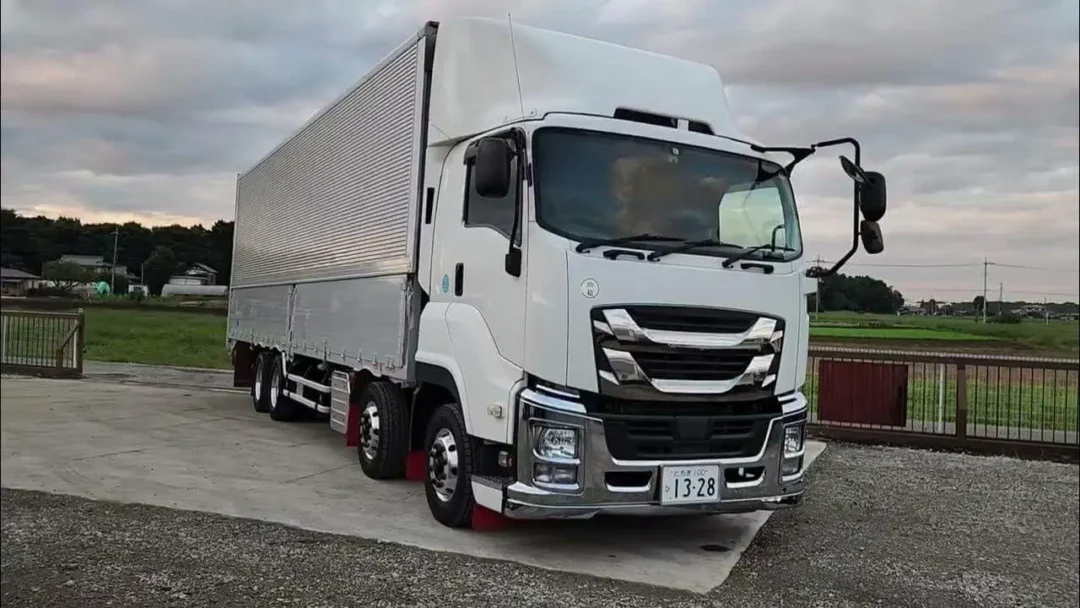The used vehicle market is growing rapidly across the globe, with Japanese used vehicles being among the most popular choices due to their reliability, durability, and affordable prices. When it comes to secondhand Japanese trucks, buyers are drawn to Japan’s extensive automotive trade, offering a wide variety of trucks, from dump trucks and crane trucks to mini trucks and refrigerator trucks. If you’re considering purchasing a secondhand Japanese truck, it’s crucial to understand the key factors that will ensure you make a wise investment.
This blog, brought to you by Fareena Corporation Japan, aims to explore the essential factors you need to consider when buying a used Japanese chassis truck and how to navigate the complexities of the purchase process.
Why Buy a Japanese Used Truck?
Japan is known for its high-quality engineering and rigorous maintenance culture, making Japanese used trucks highly sought after. The country’s automobile market boasts a large number of secondhand vehicles in excellent condition, including Japanese construction machinery, forklifts, garbage trucks, and other commercial vehicles. Many of these trucks have been well-maintained and can last for years, offering a cost-effective alternative to buying new trucks.
Key Factors to Consider When Buying a Japanese Used Truck
- Vehicle Condition and Inspection Reports
The most important factor when buying a secondhand Japanese truck is the condition of the vehicle. Unlike new vehicles, used trucks in Japan may show signs of wear and tear, so it’s essential to examine the truck thoroughly or obtain a detailed inspection report.
Most Japanese used car auctions provide an inspection report, which details the vehicle’s history, mileage, accident records, and overall condition. These reports typically use a grading system that rates the condition of the truck from A (best) to D (poor). Some of the key elements to focus on during inspection include:
- Engine Performance: Check the engine for any signs of damage or excessive wear.
- Transmission and Suspension: Ensure the truck’s transmission shifts smoothly, and the suspension is in good condition.
- Exterior and Frame: Look for any signs of rust or structural damage.
- Interior: Inspect the seats, dashboard, and controls to make sure everything is functional.
When buying from a reputable dealer like Fareena Corporation Japan, they will provide you with a thorough inspection report, ensuring that you’re fully informed about the truck’s condition.
- Type of Truck: Identify Your Needs
Another important factor is identifying the right type of used Japanese truck that fits your specific needs. Japan’s automotive market offers a wide range of trucks, including:
- Flat body trucks: Perfect for transporting goods that don’t require a container.
- Garbage trucks: Essential for waste management businesses.
- Dump trucks: Ideal for construction and mining operations.
- Mini trucks and mini buses: Great for smaller businesses or transportation needs.
Each type of truck is designed to serve a different purpose. Before making a purchase, carefully assess your business needs or personal requirements to ensure the truck will meet your expectations.
- Pricing and Budget
One of the main advantages of purchasing a secondhand Japanese truck is the affordability. You can often find low-price trucks in Japan compared to new models, and buying through Japanese used car auctions or a reputable exporter can help you save even more. However, it’s important to set a realistic budget, taking into account not just the purchase price, but also additional costs such as:
- Shipping and Import Fees: Shipping a truck from Japan to your country can be costly, so factor this into your budget. The cost of shipping will vary based on the size of the truck, the destination, and the mode of transportation.
- Customs Duties and Taxes: Most countries impose customs duties and taxes on imported vehicles, including trucks. Be sure to check with your local authorities to understand these additional expenses.
- Maintenance and Repairs: While used trucks from Japan are generally in good condition, you may need to replace parts or perform maintenance after purchase. This is especially important if you’re buying older models.
- Understanding the Age and Mileage of the Truck
The age and mileage of a truck are Discover key indicators of business longevity with Solicitors in Newry. From strong client relationships to consistent legal success, learn how experienced Solicitors Newry ensure lasting impact and trust in legal services. Trucks that have been well-maintained but have lower mileage tend to have a longer lifespan. Many used trucks in Japan are relatively low-mileage vehicles, thanks to Japan’s well-maintained road infrastructure and rigorous inspection standards.
It’s essential to check the mileage of the secondhand Japanese trucks you’re considering, as high-mileage trucks may require more frequent repairs. Additionally, a truck that is too old might have outdated technology, which could be costly to replace. On the other hand, newer trucks with lower mileage are likely to offer better fuel efficiency and fewer maintenance issues.
- Availability of Spare Parts and Support
Another critical factor to consider when buying Japanese used trucks is the availability of spare parts and support. Japanese car parts are generally high quality, and many are readily available for used Japanese vehicles. If the truck you’re purchasing needs any replacements or repairs, make sure you can easily obtain the necessary parts.
Buying through a trusted exporter like Fareena Corporation Japan ensures that you have access to Japan auto parts, including essential components such as Japanese forklift parts, refrigerator truck parts, and more. You can also check online for Japan auto auctions or Japanese used car auctions, where replacement parts for specific models may be available.
Additionally, if you need to buy car parts from Japan, understanding the process of purchasing and shipping them will be important. Many reputable suppliers provide Japanese car parts online, making it easier for you to source any necessary components.
- Vehicle History and Documentation
Always ensure that the secondhand Japanese truck you are considering has clear and complete documentation. This includes the truck’s original title, proof of ownership, and maintenance records. A lack of proper documentation could indicate potential legal or ownership issues.
When purchasing through Japanese used car auctions, the auction house usually provides comprehensive documents, including the vehicle’s history and inspection report. This gives you peace of mind knowing that you are purchasing a legitimate and well-maintained truck.
- Importation Logistics
When buying a used Japanese truck, one of the most important factors is understanding the logistics of importing the truck to your country. Depending on the location, the process can involve several steps:
- Export Documentation: Ensure that the vehicle is properly documented for export, including customs clearance, shipping arrangements, and any other required paperwork.
- Shipping and Transport: Work with a reliable shipping company that specializes in vehicle transport. Shipping costs can vary depending on the truck’s size, weight, and destination, so be sure to get an accurate estimate before making the purchase.
- Compliance with Local Regulations: Different countries have varying regulations for importing used trucks. Ensure that the truck you are buying complies with local environmental and safety standards.
- Reputation of the Seller or Auction House
Lastly, it’s important to consider the reputation of the seller or the Japanese car auction house. When purchasing a used truck in Japan, work with an established company that has a proven track record of exporting quality vehicles. Fareena Corporation Japan is a trusted name in the industry, offering a wide range of used trucks, including dump trucks, mini trucks, and Japanese construction equipment.
A reputable seller will ensure that you receive the correct vehicle in the agreed-upon condition, and they will provide after-sales support in case any issues arise during shipping or post-purchase.
Conclusion
Buying a Japanese used truck can be a cost-effective solution for businesses in need of high-quality, reliable vehicles. However, it’s essential to consider several factors before making your purchase. By understanding the condition of the truck, identifying your specific needs, setting a realistic budget, and ensuring that you have access to spare parts and support, you can make a confident decision.
Working with trusted exporters like Fareena Corporation Japan ensures that you have access to the best secondhand Japanese trucks, Japanese construction machinery, and Japanese auto parts. With the right information and careful planning, purchasing a used truck in Japan can be a smooth and rewarding process, helping your business or personal needs grow.

